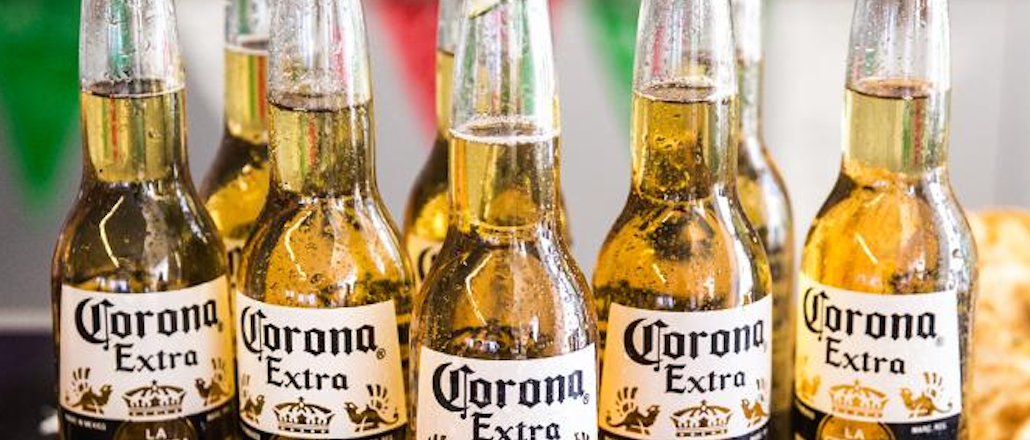
Margaritas, tequila, guacamole and fajitas. Cinco De Mayo is coming — and brands aren’t far behind. While the holiday marks the Mexican victory over France in the Battle of Puebla in 1862, it is much more widely celebrated north of the border — and no one has been more enthusiastic in their embrace than brands and advertisers.
There are several brands already glomming onto the “holiday” with cheesier-than-a-quesadilla puns, no bueno español and refried hashtags. According to data analytics firm Crimson Hexagon, the hashtag #CincoDeMayo has already been mentioned in more than 22,000 tweets between May 1 and May 4.
Drinks and slushes are half price on Cinco de Mayo, so you have no excuse not to get two. Or twenty. Go loco. pic.twitter.com/5y4zv8mUid
— Sonic Drive-In (@sonicdrivein) May 3, 2015
“This is the perfect moment in history, truly representative of our pan-cultural society,” gushed Andrew Speyer, executive director of planning at agency The Community. “It’s really the first post-cultural holiday. And while some may view it as having lost its authenticity, most members of the Mexican community are fine with it too.”
And yet many brands expressing their fealty to the holiday have absolutely nothing to do with Mexico. Or if they do, they’re far from the embodiment of the country’s culture. But through specious links to all things “Mexican” (think Taco Bell and Corona), customers overwhelmingly appear inclined to give them a pass, according to experts.
Corona, Dos Equis, Jose Cuervo, Patron and Taco Bell are just some of the top brands that have already created positive social chatter around the day, according to data from Mavrck, a social influence marketing company. Mavrck’s tool measured the engagement of a brand’s Facebook page based on comments generated around the its latest 100 posts.
And Taco Bell — not exactly what one would consider purveyors of “authentic” Mexican food — took the top honors as the most engaging brand celebrating Cinco de Mayo on Facebook with more than 10 million fans. The fast food chain was also the most talked about brand on Facebook, with nearly 200,000 mentions. Patron, Avocados from Mexico, Dos Equis and Corona were the next most-mentioned, but all far behind Taco Bell.

On Twitter, Crimson Hexagon data between May 1 and 4 found that Smirnoff and Patron were the brands with the most engagement around the hashtag #CincoDeMayo. (In 2014, it was South Park, MusclePham and Beanitos that used the hashtag most effectively.)
Brands looking to cash in on the topic as the day comes closer would be wise to have a little fun in Spanish (as long as it’s grammatically correct, that is), said Judd Marcello, VP of marketing at Smartling, a translation management software platform provider.
“Multilingual content riddled with poor translations that are not culturally relevant tells customers only one thing – they don’t matter,” he said. Instead, focus on creating “content that truly reflects the way Hispanic consumers live, act and speak.”
And while there is significant incentive to appropriate the day — the Hispanic community boasts $1.2 trillion in purchasing power in the U.S. according to Nielsen — some brands are opting out. Montejo — an Anheuser-Busch InBev-owned brew — is breaking away from tradition and planning to ignore the holiday entirely.
La cerveza mexicana sabe que sin #BatallaDePuebla no hay #CincoDeMayo. Celebremos lo auténtico. #VivaMontejo pic.twitter.com/GxWAOLP5FB
— Cerveza Montejo (@CervezaMontejo) April 23, 2015
Montejo though will be in the minority, said Mónica Marulanda, senior creative director at Alma DDB.
“As long as it’s good-natured and is celebrating diversity, it’s fine,” she said. “I don’t see the trend going away anytime soon, just like St. Patrick’s Day.”
Homepage image courtesy Corona.
More in Marketing

YouTube’s upmarket TV push still runs on mid-funnel DNA
YouTube is balancing wanting to be premium TV, the short-form powerhouse and a creator economy engine all at once.

Digiday ranks the best and worst Super Bowl 2026 ads
Now that the dust has settled, it’s time to reflect on the best and worst commercials from Super Bowl 2026.

In the age of AI content, The Super Bowl felt old-fashioned
The Super Bowl is one of the last places where brands are reminded that cultural likeness is easy but shared experience is earned.





